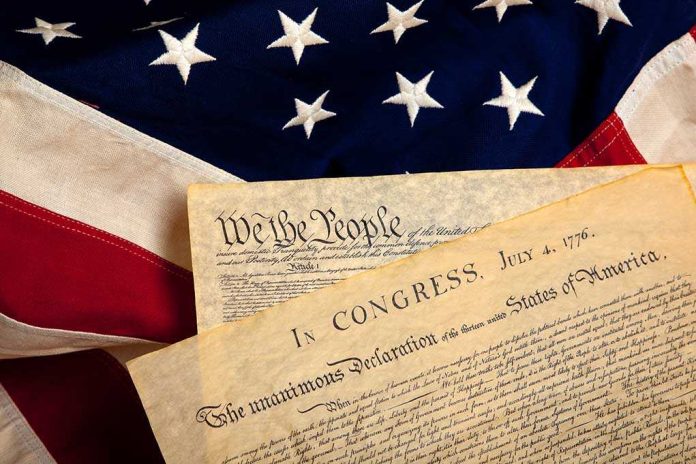
A Democratic senator’s remarks questioning the belief that rights are God-given spark outrage among conservatives, reigniting debates over America’s foundational values.
Story Overview
- Sen. Tim Kaine criticizes Trump nominee Riley Barnes for asserting rights come from the Creator.
- The debate highlights a philosophical clash over the source of human rights in U.S. policy.
- The controversy reflects broader partisan divides about America’s founding principles.
- Confirmation of Barnes could influence U.S. human rights policy emphasizing natural law.
Kaine’s Criticism of Creator-Endowed Rights
During a Senate Foreign Relations Committee hearing, Sen. Tim Kaine expressed strong opposition to Riley Barnes’ view that human rights are endowed by the Creator, not government. This criticism was directed at Barnes, President Trump’s nominee for Assistant Secretary of State for Democracy, Human Rights, and Labor. Kaine labeled this belief as “extremely troubling,” indicating a deep philosophical divide over the source and protection of human rights in U.S. policy.
Barnes, backed by the Trump administration, upholds the traditional American idea, as articulated in the Declaration of Independence, that rights are Creator-given. This belief aligns with conservative values emphasizing individual liberty and limited government. Kaine and other Democrats worry that such a stance could undermine the government’s role in safeguarding rights, sparking a contentious debate over America’s foundational principles and their modern implications.
Implications for U.S. Human Rights Policy
The clash over Barnes’ nomination underscores ongoing ideological battles within U.S. foreign policy, particularly concerning the universality of human rights. If confirmed, Barnes’ philosophy could pivot the State Department’s approach to human rights, preferring natural law doctrines over international legal frameworks. This potential shift raises concerns about America’s global human rights commitments and the impact on international relations.
Critics argue that emphasizing Creator-endowed rights could weaken protections for marginalized groups if not supported by enforceable government guarantees. Proponents, however, argue that this approach is consistent with America’s founding values and may strengthen individual freedoms against government overreach. This debate plays into broader discussions about the role of government in defining and protecting rights, both domestically and internationally.
Political and Social Ramifications
The controversy surrounding Barnes’ nomination has broader political implications, potentially delaying or complicating his confirmation. It highlights the heightened partisan scrutiny of Trump administration nominees and the ideological divides over U.S. governance principles. This debate may further polarize Senate confirmation processes and public discourse on rights, affecting perceptions of America’s commitment to universal human rights.
The outcome of Barnes’ nomination remains uncertain, with the Senate Foreign Relations Committee holding significant sway. The decision will likely influence future nominations and the philosophical orientation of U.S. human rights policy. As the nation grapples with these fundamental questions, the need for a balanced approach that respects individual freedoms while ensuring government accountability becomes increasingly evident.
Sources:
Congress.gov: Riley Barnes Nomination
White House Press Release: Nominations Sent to the Senate
Senate Foreign Relations Committee: Nominations Hearing Statement
POGO: The Paper Trail, June 20, 2025



